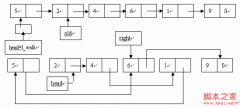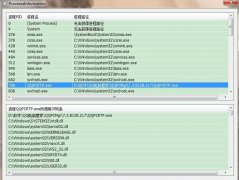linux内核模块和驱动程序的编写(2)
Linux中的大部分驱动程序,是以模块的形式编写的.这些驱动程序源码可以修改到内核中,也可以把他们编译成模块形势,在需要的时候动态加载.
一个典型的驱动程序,大体上可以分为这么几个部分:
1,注册设备
在系统初启,或者模块加载时候,必须将设备登记到相应的设备数组,并返回设备的主驱动号,例如:对快设备来说调用 refister_blkdec()将设备添加到数组blkdev中.并且获得该设备号.并利用这些设备号对此数组进行索引.对于字符驱动设备来说,要使用 module_register_chrdev()来获得祝设备的驱动号.然后对这个设备的所有调用都用这个设备号来实现
2,定义功能函数
对于每一个驱动函数来说.都有一些和此设备密切相关的功能函数.那最常用的块设备或者字符设备来说.都存在着诸如 open() read() write() ioctrol()这一类的操作.当系统社用这些调用时.将自动的使用驱动函数中特定的模块.来实现具体的操作.而对于特定的设备.上面的系统调用对应的函数是一定的.
如:在块驱动设备中.当系统试图读取这个设备(即调用read()时),就会运行驱动程序中的block_read() 这个函数.
打开新设备时会调用这个设备驱动程序的device_open() 这个函数.
3,谢载模块
在不用这个设备时,可以将他卸载.主要是从/proc 中取消这个设备的非凡文件.可用特定的函数实现.
下面我们列举一个字符设备驱动程序的框架.来说明这个过程.
/* a module of a character device */
/* some include files*/
#include"param.h"
#include"user.h"
#include"tty.h"
#include"dir.h"
#include”fs.h"
/* the include files modules need*/
#include"linux/kernel.h"
#include"linux/module.h"
#if CONFIG_MODBERSIONS==1
degine MODBERSIONS
#include" linux.modversions.h"
#endif
#difine devicename mydevice
/* the init funcion*/
int init_module()
{
int tag=module_register_chrdev(0,mydevice,&Fops);
if (tag<0)
{
printk("the device init is erro!
");
return 1;
}
return 0;
}
/*the funcion which the device will be used */
int device_open ()
{
…….
}
int device_read ()
{
…….
}
int device_write ()
{
…….
}
int device_ioctl ()
{
…….
}
……
/* the deltter function of this module*/
int cleanup_module()
{
int re=module_unregister_chrdev(tag,mydevice);
if( re<0)
{
printk("erro unregister the module !!
");
return 1;
}
return 0;
}





